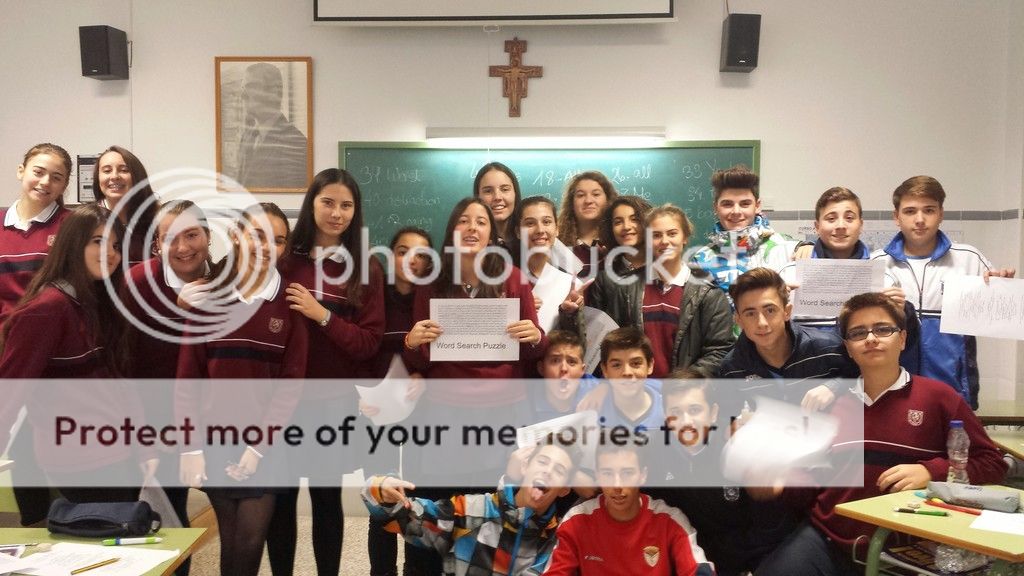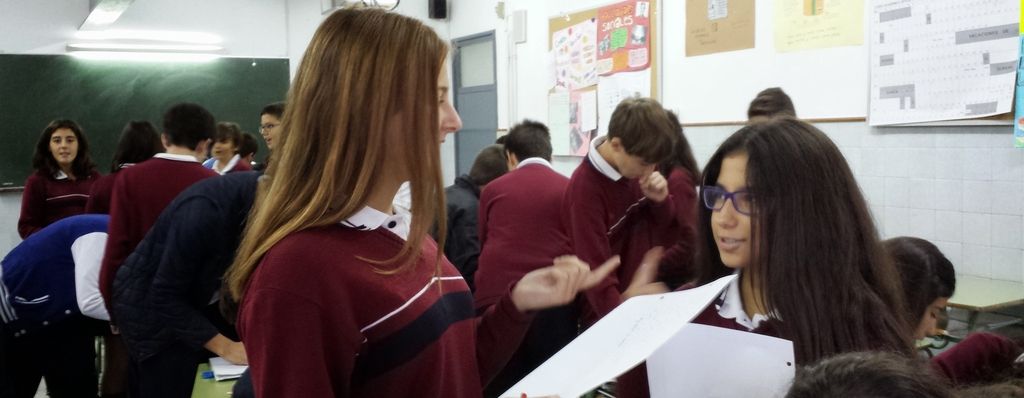PAST SIMPLE vs PAST CONTINUOUS
PAST SIMPLEa.-) we use the past simple to talk about a complete event in the past.
Yesterday I went to the library
b.-) we use the past simple to talk about one event that followed another event.
When I left university, I went to work for a private school.
PAST CONTINUOUS
a.-) we use the past continuous to talk about an action that was in progress, when something else happened.
Last Saturday I was watching TV when my cousin phoned.
b.-) In a story we use the past continuous to say what was in progress, when something happened.
The children were playing football in the park. Suddenly it started to rain.
Write the correct form of the verbs
+ I (not see) __________ Susan, when I (walk) ____________ in the park.+ While she (do) __________ her homework, her father (come) ___________ home.
+ When David (see) __________ Tom, he (not work) ___________, he(sleep) ___________ at his desk.
+ The burglar (come) __________ while they (play) ____________ some loud music.
+ They (not hear) __________ the burglar because they (play) ____________ the music too loudly.
+ The dog (bark) ___________, but nobody (come) __________.
+ I (watch) ___________ TV when my aunt (arrive) _________.
+ He (study) __________ in Salamanca when the Civil War (begin) ___________.
+ The lion (not hunt) ___________ when the man (shoot) __________ him.
+ We (play) ___________ cards when the fire (start) ___________.
+ He (give) _________ her the ring as the train (leave) _________.
+ They (see) ____________ the monkeys while they (visit) ___________ the zoo.
+ We (drive) ___________ to the hospital when the baby (be born) ____________.
+ Shakira (sing) ___________ in a concert when she (lose) ___________ her voice.
+ The police (stop) ___________ me because I (not / wear) ___________ any clothes.
+ What ___________ (you / do) when the accident (happen) ___________?
+ While we (walk) __________ in the mountains we (see) ___________ bear tracks.
+ My neighbour (meet) _____________ her husband while she (travel) _____________ around Spain.
+ The students (play) ____________ games on the computer when the teacher (arrive) ___________.
+ Jim (break) ____________ his leg when he (play) __________ golf.
+ I (see) _________ an old friend while I (wait) __________ for the bus.
+ My mother (lose) ___________her purse when she (walk) __________ home.
+ I (do) ____________ my homework when the storm (begin) ____________.
+ While I (have) __________ a shower, the lights (go out) ___________.
+ When the bell (ring) _________, we (play) ___________ football.
+ When the students (run) _______ in the park, Cristina (fall over) _____________.
+ The storm (start) _________while we (have) lunch __________.
+ My mother (cut) bread ___________ when she (cut) _________ her finger.
+ What (you / do) ____________ after you (get) ________ home? I (have ) __________ a shower and then I (do) ___________ my homework.
+ When I (leave) ________ school, I (go) _________ to Dublin and I (study) ___________ English for three months.












